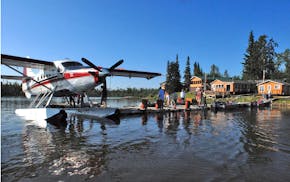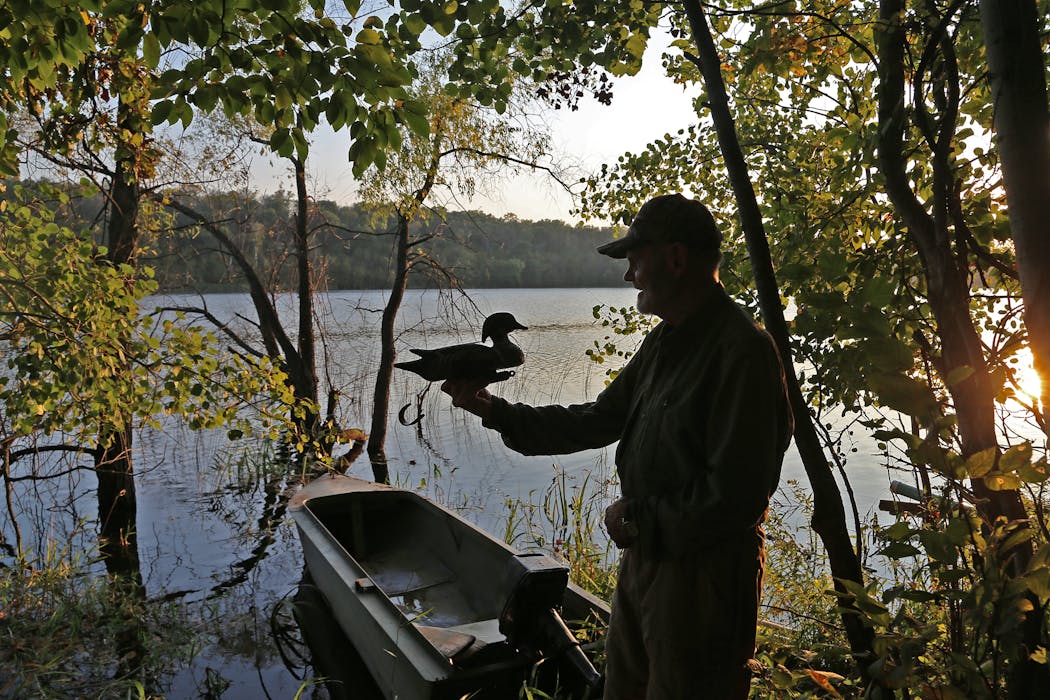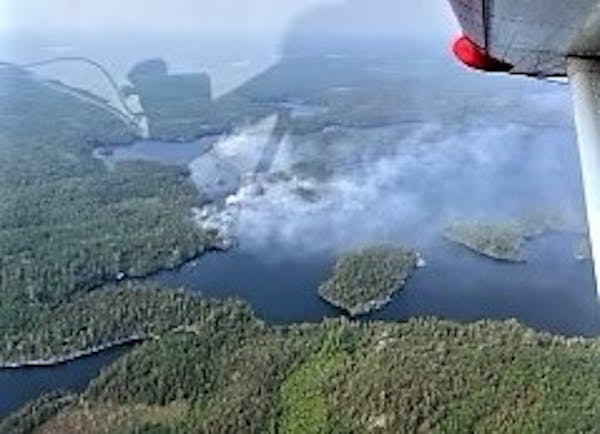In 1856, the fur trader Joseph Brown directed four men to establish a route from the Red River on today's Minnesota-North Dakota border to Traverse des Sioux, in what is now Nicollet County, just north of the town of St. Peter.
En route, the men passed Green Lake, the gem of present-day Kandiyohi County, and were so taken with its beauty, they vowed to return and establish homesites on its shores.
Nearly a century would pass before Roger Strand, who died last week at age 87, would see Green Lake for the first time, but even as a kid he was similarly beguiled by the 5,500-acre, viridescent body of water.
Brought from Minneapolis by his parents to the family cabin on the north side of the lake, Strand would spend his childhood summers in this beautiful part of Minnesota, where prairies meet woodlands, and both flourish.
Strand's childhood impressions of the region would stick, and after he graduated from college, and then medical school, and after he married his wife, Kay, he returned to Willmar, the Kandiyohi County seat, where, as a skilled surgeon he specialized in resolving injuries of the hand — the bane of cash-crop farmers — and was renowned as a kind man who wielded an exacting scalpel.
Strand's father, Orrin, had been similarly entranced by this part of south-central Minnesota, whose glaciated prairie soils are pockmarked with crystalline lakes surrounded by pines, but also oaks and ashes, elms, maples and basswoods. The elder Strand was particularly interested in the region's many shallow lakes and wetlands, which in fall attracted migrating flocks of mallards, teal, pintails and other fowl.
"My father had one hobby, hunting ducks,'' Roger Strand told me in 2019, the last time we visited in person. "And he always wanted us kids to have a place to hunt.''
So it was that in the middle part of the last century Orrin Strand purchased 80 acres of ponds and woodlands in Kandiyohi County, and shortly thereafter, in 1955, erected a concrete-block structure, dubbing it the Stoney Lake cabin.
Orrin Strand couldn't have known it at the time, but his purchase set in motion a legacy that may pay dividends forever. Certainly his many descendants have benefited, gathering as they do in autumn at the small shack to fire up its wood stove and, come nightfall, hunker in its creaky bunks before rising early and setting out in vintage boats to see what's flying. Or, during deer season, what's moving.
"In 1966 I bought the farm adjacent to the 80 acres my dad bought for hunting,'' Strand told me. "I didn't know the couple who owned the farm. But one day I just walked up to the door and said, 'My dad owns the land next to you and if you ever want to sell your farm, I'd be interested.' The farmer looked at me and said, 'Well, Ma and I have been thinking about selling.' "
Expanding his holdings to about 400 acres, Strand's purpose, it could be assumed, was to corner for himself and his family a primary chunk of real estate, to the exclusion of others. Closer to the truth is that he wanted the additional property so he could erect his more than 115 wood duck boxes, which are proven incubators of these beautiful birds. This work, joyfully undertaken, helped sate Strand's lifetime desire, and Kay's, to give back to nature more than they took.
So it was also that in 1983 the Strands opened their property to a fall extravaganza called Prairie Pothole Day. Organized initially as a fundraiser for the Minnesota Waterfowl Association, the gathering is an outdoor event that in style and substance is modeled after Game Fair, held each August at Armstrong Ranch Kennels in Anoka.
In true Roger Strand fashion, however, no admittance fee is charged for Prairie Pothole Day — the better, Strand figured, to attract families, especially children. Over many years he had relished the opportunity as a visiting teacher at a nearby environmental learning center to inspire kids to lives of wonder and awe about the world around them, hoping they would trade screen time for sunshine. Now, hosting Prairie Pothole Day, the teaching, and enlightenment, could continue.
Aldo Leopold, the famed conservationist, said, "We shall never achieve harmony with land, any more than we shall achieve absolute justice or liberty for people. In these higher aspirations the important thing is not to achieve, but to strive."
Preparing for the time he and Kay, who passed away in 2020, would no longer be present on their Stoney Ridge Farm, but striving as they always did to accommodate the wood ducks that return to their property's nesting boxes each spring, the Strands placed their acreage in a land trust, never to be developed.
On the same property, fulfilling Roger and Kay's wishes, the 40th Prairie Pothole Day will be held in September.
No charge, all are welcome. Kids especially.

Anderson: DNR wants to cut Minnesota walleye limit to 4, but some want the idea thrown back
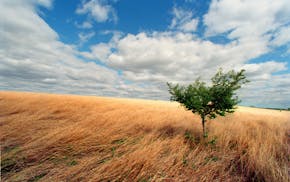
Anderson: It's time to get politics out of Minnesota conservation
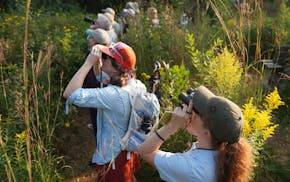
Anderson: Minnesota birders, bikers, hikers should pay their fair share
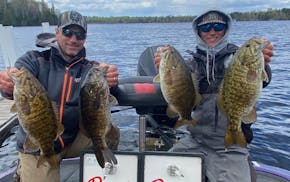
Anderson: Hooked on bass, young Minnesotan survives brain surgery, lands 8-pounder to win Bassmaster Classic
